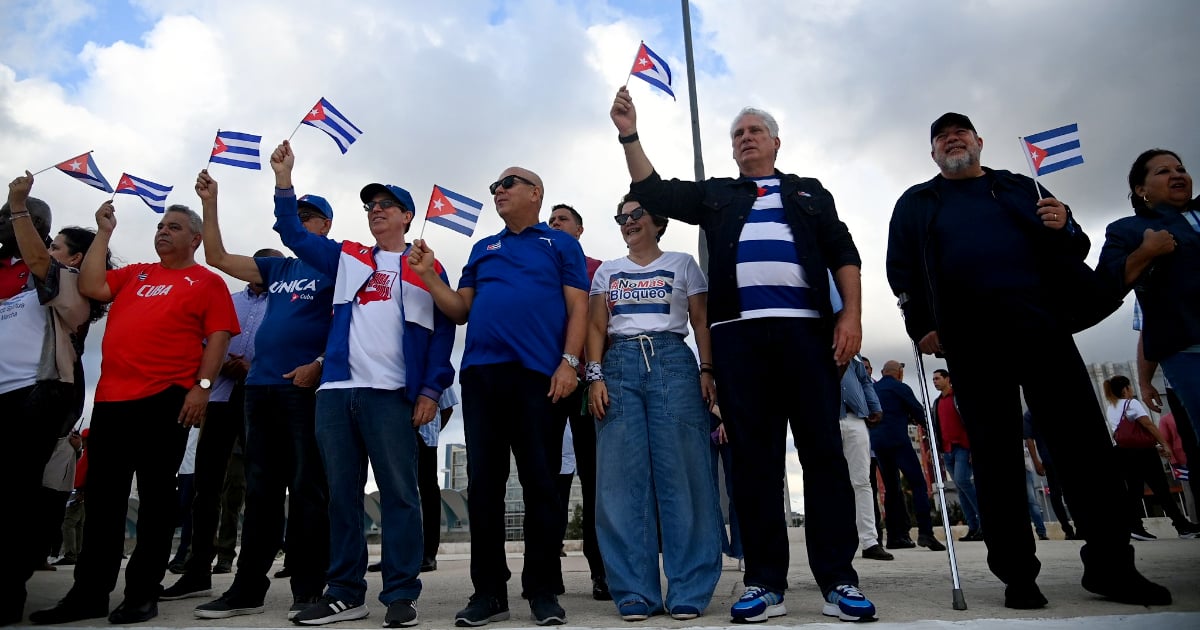
Related videos:
The Cuban regime reacted in a predictable and belligerent manner after its reincorporation to the list of state sponsors of terrorism by the U.S. government, a decision that, far from acknowledging reality, has been described by Havana as an "imperialist attack."
The official statement, filled with propagandistic rhetoric and manipulations, focuses on victimizing the Cuban government and portraying the United States as the aggressor, omitting any self-criticism regarding repressive practices and the historical support for extremist groups around the world.
The Cuban Foreign Minister, Bruno Rodríguez Parrilla, took to Twitter to denounce the U.S. measure, asserting that "nothing justifies" the decision and that it "rests on lies."
However, the facts contradict the official narrative, as the regime maintains a close relationship with terrorist organizations and authoritarian governments, such as Russia, Iran, North Korea, Nicaragua, and Venezuela, which has raised concerns among the international community.
In its official statement, the Cuban government insisted on blaming Washington for all the island's problems, from the economic crisis to the massive exodus of citizens, the largest in recent history. However, the regime's own policies, marked by repression, a lack of freedoms, and economic inefficiency, are the true causes of the decline in quality of life in Cuba.
The document published by the Ministry of Foreign Affairs (MINREX) relies on clichéd arguments, asserting that "the blockade and American aggressions" aim to destroy the revolution, while ignoring independent reports that highlight corruption and a lack of transparency in government management.
In this regard, Cuban civil society is becoming increasingly aware of the role of GAESA (Grupo de Administración Empresarial S.A.), a conglomerate that controls over 70% of the country's dollarized economy and acts with impunity against Cubans, extending "clientelism," corruption, and the plundering of the nation's resources by an "extractive elite" that is moving towards the establishment of an oligarchic system, with growing inequalities and founded on the absence of rights and freedoms, just as the advisors from Moscow prescribe.
For greater shamelessness and impunity when it comes to lying, the Cuban regime mentioned in its statement the recent march on December 20th along the Malecón in Havana, as a demonstration of popular support for the project of domination that has been imposed on the island for over 60 years under the name of "revolution." With this mobilization controlled by the authorities and lacking spontaneous citizen participation, does the Cuban regime intend to sustain its legitimacy?
Cuba's return to the United States' blacklist is a direct consequence of its history of supporting destabilizing movements in the region and its alignment with powers that challenge the world order promoted by Western democracies. The narrative of the Cuban totalitarian regime, which seeks to assign all blame to Washington, fails to conceal the growing internal discontent and the deterioration of the humanitarian situation on the island.
While the regime insists on its narrative of resistance, reality shows a Cuba engulfed in the worst crisis of its recent history, with a population desperate to flee and an economy on the brink of collapse. The true assault does not come from abroad, but from the ruling elite itself, which continues its policy of repression and misinformation.
Filed under: